With the incidents of house fires on the rise fire security does not simply entail ensuring that the building has a Fire NOC, opting for a fire insurance and installing fire safety equipment…there’s a lot more to be done at the householder level too!
“The fire that warms us can also consume us; it is not the fault of the fire” – Swami Vivekananda
Fire plays a pivotal role in our daily life, also in our culture. All Hindu ceremonies including Hindu marriages and cremations are incomplete without fire. Then again, according to Hinduism, five innate elements which form the basis of all cosmic creations are – earth, water, space, air and fire. In fact, the discovery of fire was a moment of pride for primeval man as it provided warmth to human beings from the cold winds of winter; the opportunity to eat proper cooked food; and kept him safe from wild animals. Nevertheless, no one can deny that this very same fire if uncontrolled can create havoc with assets both inanimate and animate.
Fire if unbridled, is dangerous because – not only does it generate heat but also asphyxiating smoke. In fact, research claims that during fire mishaps more lives are lost to smoke rather than to fire.
What make fires fatal are their frightening unpredictability, fast and uncontrollable spread, and the smoke, which they generate. House fires not only damage assets but also endanger the health and lives of the inhabitants. While insurance can compensate for the financial losses, the emotional trauma and the loss of life can never be compensated. With prevention being better than cure wouldn’t it make more sense to mitigate chances of fire accidents rather than fighting fire…?
So Gharpedia brings you a look at what causes fire and fire safety tips to protect ones house from fire … the house being an asset which for most people epitomises the steepest investment of their lives. We have given causes of fire as well as home fire prevention & safety tips. We also outline tips of what to do in case a fire breaks out in your house.
Common Causes of Fire – Mitigation Measures
Fires Related to Cooking
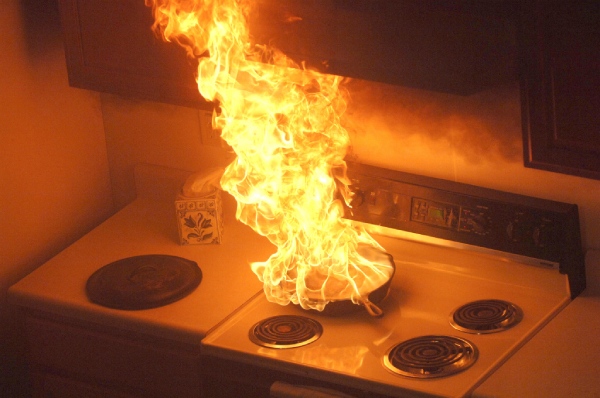
Around 48 per cent of all residential fires are set off by cooking fires; most often caused by greases that become overheated on a stove or in an oven. Moreover, as everyone is aware, grease is highly flammable when it gets to about 600 degrees Fahrenheit and can combust spontaneously, even without direct flame contact. Once grease is ignited, it is extremely challenging to smother the flames.
Tips to Prevent Fire Due to Cooking in Your Kitchen
- Never leave the kitchen unattended when cooking in oil or when cooking a food that produces grease on a stove or in an oven.
- Thoroughly clean your cookware to prevent grease from building up over time.
- Never leave portable cooking appliances – such as toasters and electric griddles – unsupervised, and make sure they are cool to the touch before storing them away.
- Regularly clean your toasters of crumbs that might ignite if they build up inside the appliance.
- Never hold barbecues in closed spaces – say a garage.
What to Do in Case of Fire
- Extinguish mini grease fires by – quickly turning off the heat and smothering the fire with a metal lid; or sprinkling baking soda or salt on the fire.
- Use a Class-B or Class-K fire extinguisher.
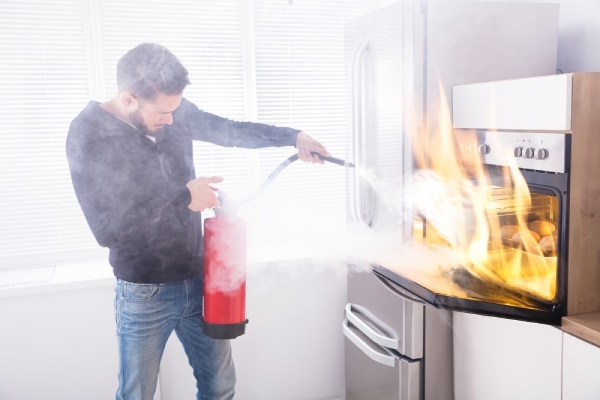
i) A Class-B fire extinguisher is used for flammable liquid and gas fires such as oil, gasoline, etc. These fire extinguishers deprive the fire of oxygen and interrupt the fire chain by inhibiting the release of combustible vapours.
ii) A Class-K fire extinguisher is used on fires involving cooking media (fats, grease, and oils) in commercial cooking sites such as restaurants. These fire extinguishers work on the principle of saponification. Saponification takes place when alkaline mixtures, such as potassium acetate, potassium citrate, or potassium carbonate, are applied to burning cooking oil or fat. The alkaline mixture combined with the fatty acid creates a soapy foam on the surface that holds in the vapours and steam and extinguishes the fire.
- In case of a serious fire call the fire department immediately.
- Do not dump water over the grease fire, as this may lead the hot grease to explode and throw burning grease over the area.
Apart from Class-B and Class-K fire extinguisher, you can also use water type fire extinguisher. You can have the detail of water type fire extinguisher from here.
Fires Related to Heating Appliances
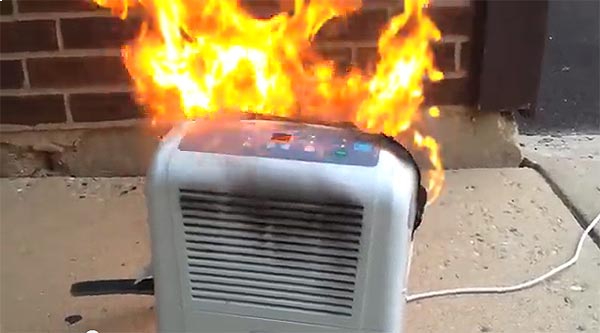
15 per cent of home fires occur due to heating appliances especially those which require fuel, such as kerosene as they can ignite or blow up if not properly watched. Electrical heaters too can cause fires if the electrical wiring is faulty, or if combustibles like draperies or other fabrics come in contact with the coils.
Tips to Prevent Fire Due to Heating Appliance of Your Home
- Always follow the instructions on any heating device you use.
- Inspect heating devices regularly to ensure that they are in good condition.
- Never leave the house with a heater running.
- Ensure flammable materials are kept well away from space heaters.
Fires Related to Electrical Wiring
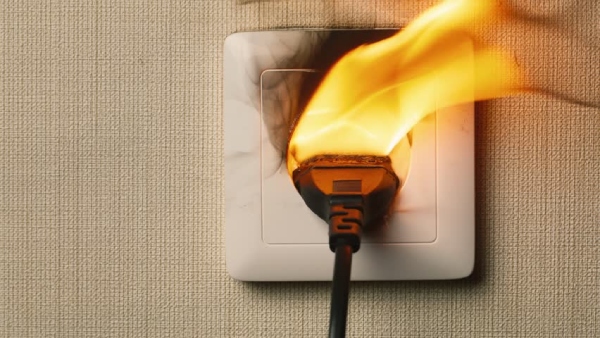
10 per cent of residential fires occur due to electrical problems. Faulty home wiring leads to electric fires, which occur because of short circuits; or from overloaded circuits that cause wires to overheat.
Tips to Prevent Fire Due to Electrical Wiring in Your House
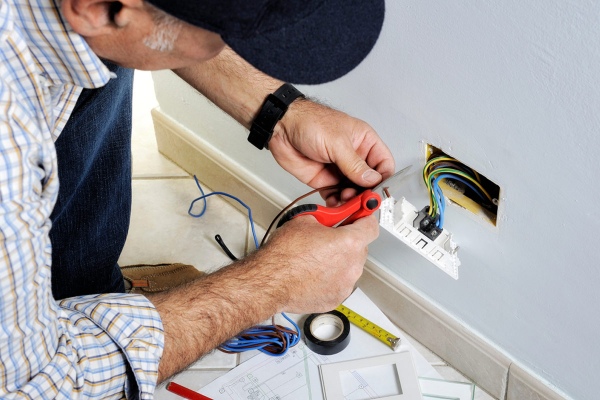
- Have your wiring checked out by a professional electrician.
- Do not perform your own electrical repairs or improvements unless you understand the principles of electricity and have experience doing such work.
We have another article for you to avoid fire accident due to electrical shock.
Fire in Home Due to Smoking
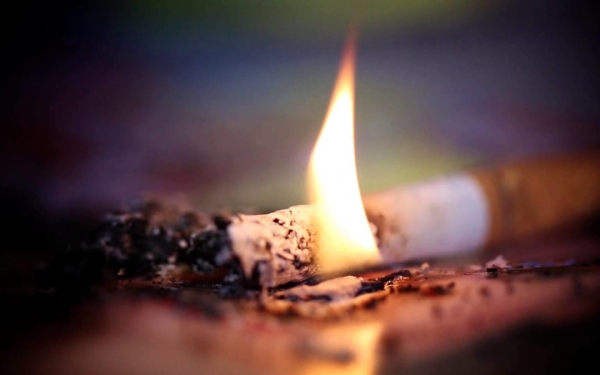
5 per cent of home fires are attributed to cigarettes and smoking materials like incense sticks. Cigarette butts dropped on carpeting, furniture, or other flammable materials have a fatal potential for igniting fires.
Tips to Prevent Fire Due to Smoking in Home
- Avoid smoking in bed.
- Smoke outside or over a sink while using an ashtray to help reduce your fire risk.
- Do not place incense sticks over cloth or paper.
- Extinguish match sticks thoroughly before throwing them in the bin.
Fires Related to Chemicals
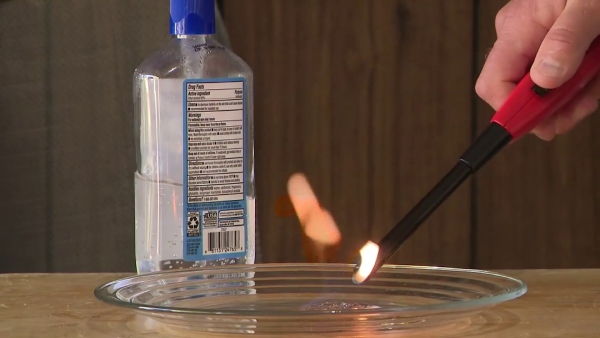
Although more common in industrial/commercial locations, these are fast coming up in residences too when volatile vapours from alcohol-based liquids reach a flash-point temperature or when the fumes contact a source of open flame or due to spontaneous combustion.
Tips to Prevent Fire Due to Chemicals
- Store all fuels and other chemicals in their proper containers (ensure that you leave 5 per cent space empty in the container), tightly sealed in fireproof cabinets at locations as far as possible from living spaces.
- Never stack and store oil-soaked or chemical-soaked rags after they are used instead spread them out in an outdoor location until the oil evaporates. Once thoroughly dry, they can be washed for reuse.
Fires Related to Clutter & Electronic Gadgets in Your Home

- Tendency to store newspapers, cooking oil cans and other flammable material is a sure-shot recipe for disaster. So try to dispose of these at the earliest.
- With smartphones, tablets and laptops becoming a mandate in these days of virtual learning and working ensure that they don’t heat up too much and never place them on charge mode unattended especially during the night. Also try not to keep combustibles like fabric, sanitizers and paper too close to these gadgets.
General Fire Prevention Measures
Besides the above major causes of fire some other general preventive measures include –
- Prior to purchasing a house ensure that the same is fire safety-compliant.
- Have fire security equipment installed – alarms, extinguishers et al.
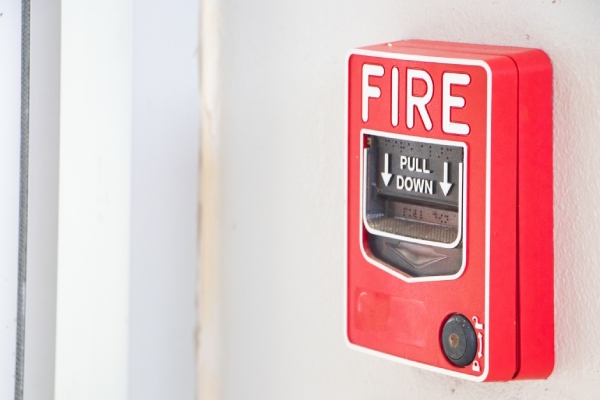
- Do not overstuff your house with furniture and artefacts – always leave the exit passage obstacle-free.
- Conduct fire drills regularly.
- Ensure that everyone in the family knows how to operate a fire extinguisher.
- Take a fire insurance policy.
- Explain the dos and don’ts to the children and elderly in the family.
Things to Do During a Fire
- Grab and deploy the fire extinguisher.
- Raise an alarm.
- Call the fire brigade – 101 in India.
- Provide clear location instructions to the fire personnel – proper address, clear landmarks et al; once they reach adhere to the same clarity when it comes to informing them about members and pets stuck in the house.
- Leave valuables behind.
- If your clothes catch fire, then stop, drop and roll.
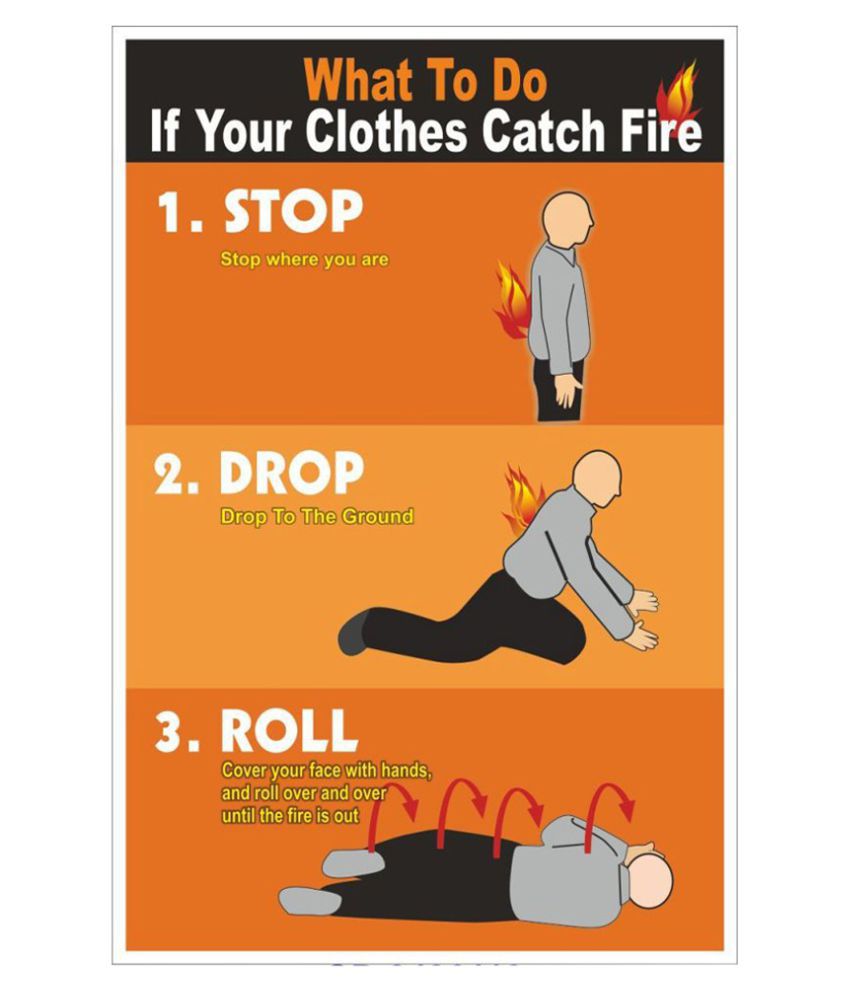
- Cover your nose.
- Close doors.
- Stay out of the house.
- Keep all family members at a safety evacuation spot.
- If unable to move out of the house rush to the bathroom and stand under the shower, provided there is no smoke.
Fires are daunting and not only can they cause irreparable damage and destruction but also injuries and deaths. The solution here lies in taking ample precautions to ensure that such mishaps never take place; and if despite taking all necessary safeguard measures tragedy strikes then one needs to stay cool and calm and reach out for professional help.
We really hope that these home fire prevention & safety tips will help you to protect yourself and your loved ones during fire outbreaks.
Below are must read articles for you to make your home fireproof.
Image Courtesy: Image 1, Image 2, Image 3, Image 4 – wpengine.netdna, Image 5, Image 6, Image 7, Image 8, Image 10, Image 11
Author Bio
Huta Raval – An English Literature and Journalism Topper, Huta Raval has graduated from the L D Arts College, Ahmedabad. Post serving for 23 years in the NBFC and Public Library Sectors her desire for ‘writing the unwritten’ brought her to the creative field of content writing. Her clientele comprises of NGOs, Blogging Platforms, Newspapers, Academic Institutions, et al.



